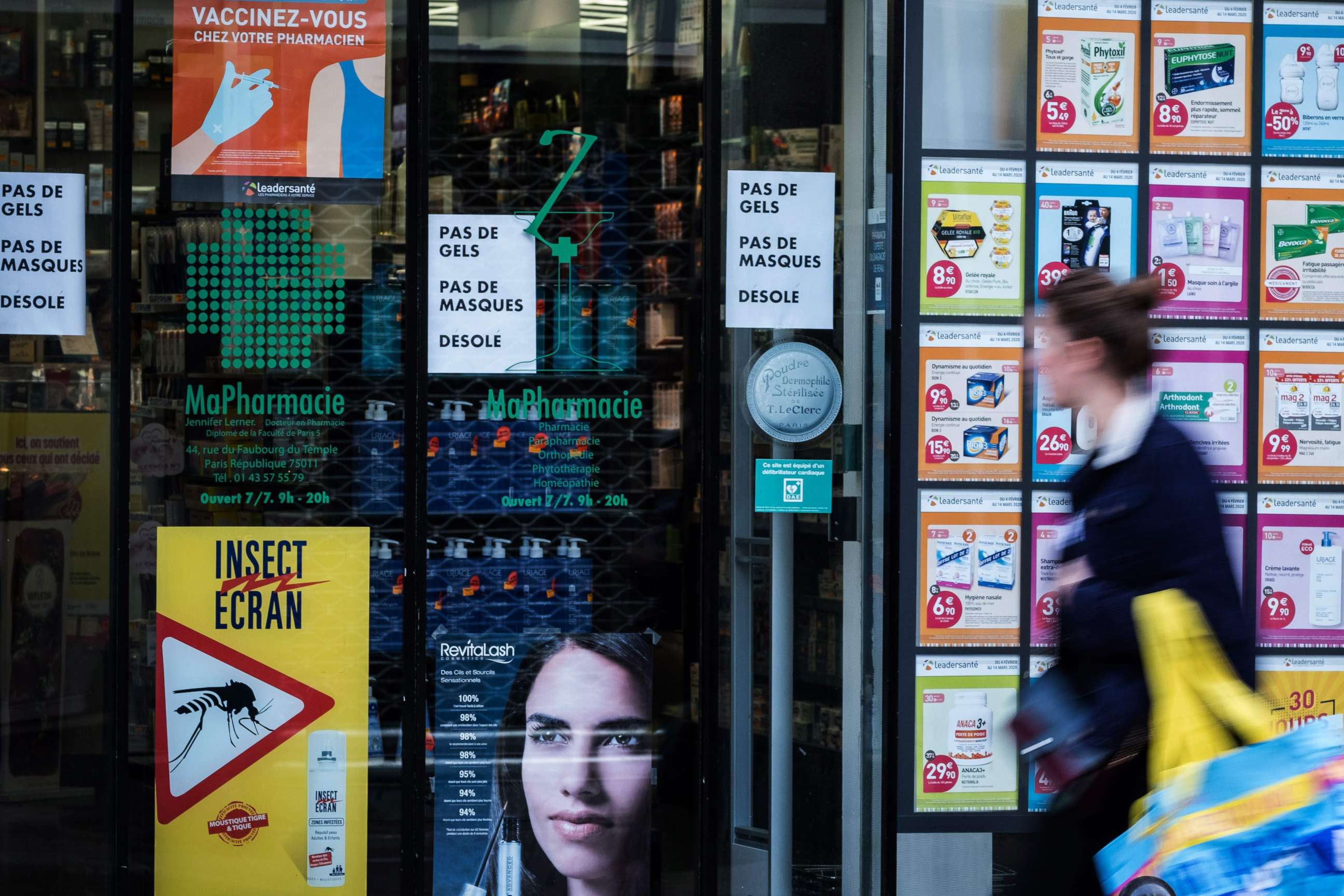French women use code words at pharmacies to escape domestic violence during coronavirus lockdown
PARIS -- As part of its effort to assist domestic abuse victims during the coronavirus pandemic, when one partner may be self-quarantining with an abuser, officials in France have designated pharmacies as places where women can go and speak in a code that the pharmacist will understand.
In Nancy, a woman went to her local pharmacy on March 28 to report the violence. “The pharmacist had then informed the police by phone, thus triggering immediate intervention by the police,” François Pérain, the Nancy prosecutor, told ABC News.
Asked about the policy on national broadcaster France 2, Christophe Castaner, the Interior Minister, said that the lockdown put in place since March 17 in France to stem the COVID-19 pandemic had resulted in an increase in domestic violence.
In the area of the Paris police prefecture—which covers Paris and three surrounding suburbs—Castaner said it had increased by "36% in one week.”
Tune into ABC at 1 p.m. ET and ABC News Live at 4 p.m. ET every weekday for special coverage of the novel coronavirus with the full ABC News team, including the latest news, context and analysis.
On March 27, the Interior Minister had put a strategy in place with the president of the Pharmacists’ Guild that pharmacists would be a first port-of-call for victims of domestic violence.
The code word “mask 19” can be used by the victim if she is accompanied by her spouse, he had suggested. The use of a code is a system already implemented in Spain.

However, as a Breton MP recalled, most of these acts "take place in the evening and at weekends."
To reinforce the mechanism, Castaner announced the possibility to alert the police by simple text to the emergency number 114, “because in any case the lockdown should not allow conjugal or intrafamily violence."
In the Nancy case, “the victim did not have to resort to any code. She was alone and could speak freely,” said Pérain, the prosecutor. The alleged attacker was placed in judicial detention and is forbidden to go back to the family residence until the hearing set on June 5.
"We know that periods of crisis can generate or increase violence", Caroline De Haas, president of the France’s #MeToo movement, the collective #NousToutes, said in a video interview with Konbini. De Haas expressed concern for the 200,000 women currently confined with a violent spouse in France. She reminded victims that under the current confinement measures, it is absolutely not recommended to go out, but it is absolutely not forbidden to flee.
France’s lockdown is to last “at least” until April 15.
What to know about coronavirus:
- How it started and how to protect yourself: coronavirus explained
- What to do if you have symptoms: coronavirus symptoms
- Tracking the spread in the US and Worldwide: coronavirus map







